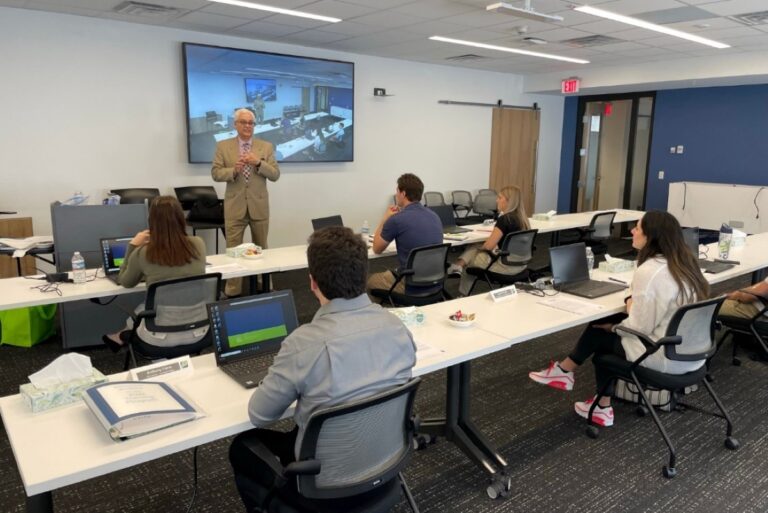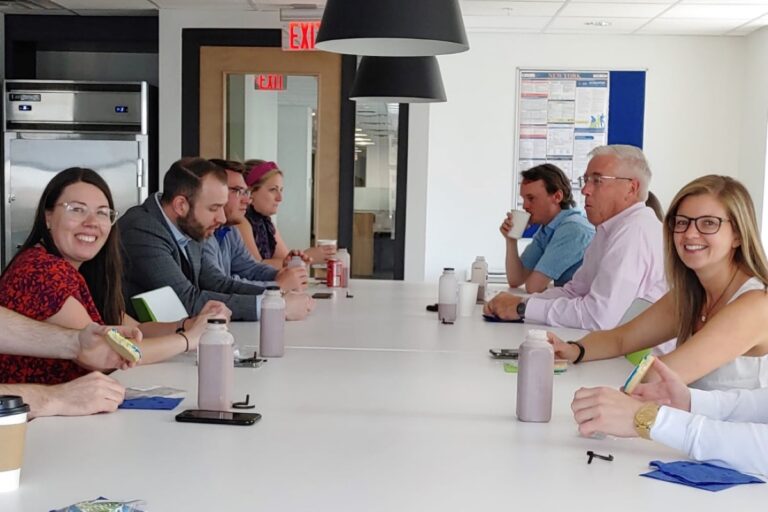Top 10 Jobs Will Be Replaced by AI in The Future
What jobs will be taken by AI in the near future? Originally appeared on Quora: the place to gain and share knowledge, empowering people to learn from others and better understand the world.
You may have heard about the theory that “rise of the robots” is deemed to end almost half of the industry’s workforce around the world. Experts say that if automation is not planned well and addressed holistically, it can lead to disaster without a doubt, affecting 60% to 70% of the current jobs. They will either get marginalized or eliminated once and for all. It is also said that automation is threatening 69% of the job market in India, while it’s 77% in China, according to a World Bank research.
The fear that AI will replace endless jobs can be justified to a certain point but it’s not completely true. I believe that it’s not just the threat that AI carries with it but it’s also about weaving technology to create more jobs. Technology leaders are drumming up the thought that the emergence of new technologies such as Artificial Intelligence and automation is going to be the new drivers of employment. This era of digitization and automation will create newer career choices for IT professionals. According to the report ‘How Automation is Changing Work Choices’ the new job roles that will dominate the IT workforce are within digital domains such as Big data, Internet of Things (IoT), Cloud Computing, Cybersecurity etc.
While there is a risk to jobs due to these trends, the good news is there are also a lot of new jobs opportunities that are getting created in areas like cybersecurity, cloud, big data, machine learning and AI. It is clearly a time to pivot career for IT professionals to make sure they are where the growth is. There are other industries that have also started to look from the optimist’s viewpoint embracing the fact that AI and automation can save them a lot of cost by creating an increased demand of products within a shorter period of time, generating more profit and paying higher wages to the employees.
Based on the landmark 2013 study that inspired “Will Robots Take My Job?” we’ve rounded up some of the marketing and sales roles most likely to be replaced by robots, bots, and AI in the next few years. This study analyzes the likely probability that a job will be replaced by automation and computerization — based primarily on the level of routine a job has and the specialized training and social intelligence required to complete it. It’s not an exhaustive list, but it gives you an idea of what your life could look like in a few years.
10 Careers AI Will Replace (and 10 That Are Safe) Most Likely to Be Replaced
1) Telemarketers
Likelihood: 99% Why: You probably already receive robo-calls on behalf of various products and services, and career growth in the telemarketing space is expected to decline by 3% by the year 2024. This is largely in part because of the requirements to be successful: Unlike other sales roles, telemarketers don’t require a high level of social, or emotional, intelligence to be successful. Think about it — are you likely to purchase from a telemarketer? Conversion rates for direct telephone sales are typically less than 10%, making this role a ripe opportunity to be automated.
2) Bookkeeping clerks
Likelihood: 98% Why: Jobs in this role are expected to decline 8% by 2024, and it’s no surprise why — most bookkeeping is becoming automated, if it hasn’t been already. QuickBooks, FreshBooks, and Microsoft Office already offer software that does the bookkeeping for you that’s much more affordable than a person’s salary, so it’s no surprise this job has such a high probability.
3) Compensation and Benefits Managers
Likelihood: 96% Why: This one is surprising because the job growth is supposed to increase 7% by 2024. But just because there’s demand doesn’t make you safe from automation. As companies grow in size — especially across multinational markets — a human and paper-based system can present more hurdles, time delays, and costs. Automated benefits systems can save time and effort for providing benefits to large numbers of employees, and companies like Ultipro and Workday are already being widely adopted.
4) Receptionists
Likelihood: 96% Why: Pam predicted this back on The Office, but in case you’re not a fan, automated phone and scheduling systems can replace a lot of the traditional receptionist role — especially at modern technology companies that don’t have office-wide phone systems or multinational corporations.
5) Couriers
Likelihood: 94% Why: Couriers and delivery people are already being replaced by drones and robots, so it’s only a matter of time until this space is dominated by automation altogether. At the same time, this space is expected to grow by 5% by 2024, so it might not happen as quickly as you think.
6) Proofreaders
Likelihood: 84% Why: Proofreading software is everywhere — and we use it a lot here at HubSpot. From Microsoft Word’s simple spelling and grammar check to Grammarly and Hemingway App, there are a lot of technologies out there that make it easy to self-check your own writing.
7) Computer Support Specialists
Likelihood: 65% Why: The field is projected to grow 12% by 2024, but with so much content on the internet with instructions, step-by-step guides, and hacks out there, it’s no surprise companies will rely more heavily on bots and automation to answer support questions from employees and customers in the future.
8) Market Research Analysts
Likelihood: 61% Why: Market research analysts play an incredibly important role in the development of messaging, content, and products, but automated AI and surveys can compile this information more and more easily. GrowthBot, for example, can conduct market research on nearby businesses and competitors with a simple Slack command.
9) Advertising Salespeople
Likelihood: 54% Why: As advertising shifts away from print and TV and towards web and social media landscapes, people simply don’t need to be managing those sales for marketers who want to buy ad space. More social media platforms are making it easy for people to buy space through free application program interfaces (APIs) and self-serve ad marketplaces to remove the salesperson and make it faster and easier for users to make money — and that’s reflected in the projected 3% decline in the industry.
10) Retail Salespeople
Likelihood: 92% Why: If you’ve visited a mall, car dealership, or furniture store lately, you might not have been assisted by a salesperson at all from start to finish. Companies are democratizing the shopping experience with features like self-checkout, and the modern buyer is much more internet-savvy and more likely to do internet research and make a buying decision on their own.
Most Likely to Be Safe (For Now)
1) Human Resources Managers
Likelihood: 0.55% Why Not: It’s kind of in the name — but your company’s Human Resources department will likely always need a human at the helm to manage interpersonal conflict with the help of non-cognitive and reasoning skills. The field is projected to grow 9% by 2024 as companies grow and need more robust structures for supporting and helping employees.
2) Sales Managers
Likelihood: 1.3% Why Not: Sales managers need a high level of emotional intelligence to hit their quotas each month, network and collaborate with customers, and motivate and encourage the larger sales team. Managers also have to analyze data and interpret trends, and the high levels of intelligence required — plus the constant need to adapt to new situations — makes this role safe from automation.
3) Marketing Managers
Likelihood: 1.4% Why Not: Marketing managers have to interpret data, monitor trends, oversee campaigns, and create content. They also have to nimbly adapt and respond to changes and feedback from the rest of the company and customers, making this another human-forward career AI isn’t quite ready to replicate.
4) Public Relations Managers
Likelihood: 1.5% Why Not: Successful PR managers rely on a network of relationships and contacts to procure press placements and buzz for the companies they represent, making this another completely safe role. PR managers who have to raise awareness around an issue or mission need a particularly human touch to raise funds or get people to participate in a campaign, too — and jobs are expected to grow 7% by 2024.
5) Chief Executives
Likelihood: 1.5% Why Not: It’s nearly impossible to automate leadership — after all, it’s hard enough to teach it. Chief executives have to inform broad strategy, represent companies’ missions and objectives, and motivate huge teams of people working for them. Companies may answer to stakeholders and boards of directors, who likely wouldn’t want a robot giving them an earnings report, either.
6) Event Planners
Likelihood: 3.7% Why Not: Event planning is a growing field, and if you ask anyone on our events team here at HubSpot, whether you’re planning an event for employees, customers, or an industry event with tens of thousands of attendees, the planning process has many, many moving parts involved. Planners have to coordinate and negotiate with vendors, contractors, and freelancers to make things come together, and the organizational and people skills involved will make this another near-impossible role to automate.
7) Writers
Likelihood: 3.8% Why Not: (I breathed a sigh of relief on this one.) Writers have to ideate, create, and produce original written material. AIs can do some of this with title suggestions, writing prompts, and automated social media messages, but blog posts, books, movies, and plays will likely be written by humans for the foreseeable future.
8) Software Developers
Likelihood: 4.2% Why Not: Software engineering and development is hard enough for human beings to do, and the time and skill investment needed to create applications, software, and websites will be tough to replicate — especially since developers need to execute perfectly to create great products for customers. The field is expected to grow by 19% by 2024, so if you’re a software developer, you’re sitting pretty for now.
9) Editors
Likelihood: 5.5% Why Not: While some of the load can be lifted from editors with the automated proofreading technology mentioned previously, editors have to review writers’ submission for clarity, accuracy, comprehensiveness, and originality. While there is some software that can spot-check for clarity and scan for plagiarism, the editor role must be carried out by a human in order to read work as another human would.
10) Graphic Designers
Likelihood: 8.2% Why Not: Although there are some AIs taking small (and somewhat creepy) steps in the graphic design space, graphic design is both artistic and technical, making it an ideal role for a human being to carry out. Like writing, all work needs to be original and created to the client’s wishes, so graphic design needs to be created with a human artist and editor all-in-one.
The Bottom Line Is
Let us not forget the fact that when automation kills few jobs, it creates others. We cannot all be pessimists about the changes which AI is bringing but should be ready to recover from the short-term adjustment period that our economy may face in the coming future. Of course, it is predefined that AI will make some labor obsolete but we cannot hide from the bigger picture of the potential benefits that AI will bring along, easing its way into the economy retraining humans for jobs overlooking a new set of activities. This technology is giving a new meaning to businesses and our lives. Can’t wait to see how this technology unfolds in the coming years.
Contributed by Bhavesh Srivastava, Machine Learning Engineer at Crecientech Infosystem









